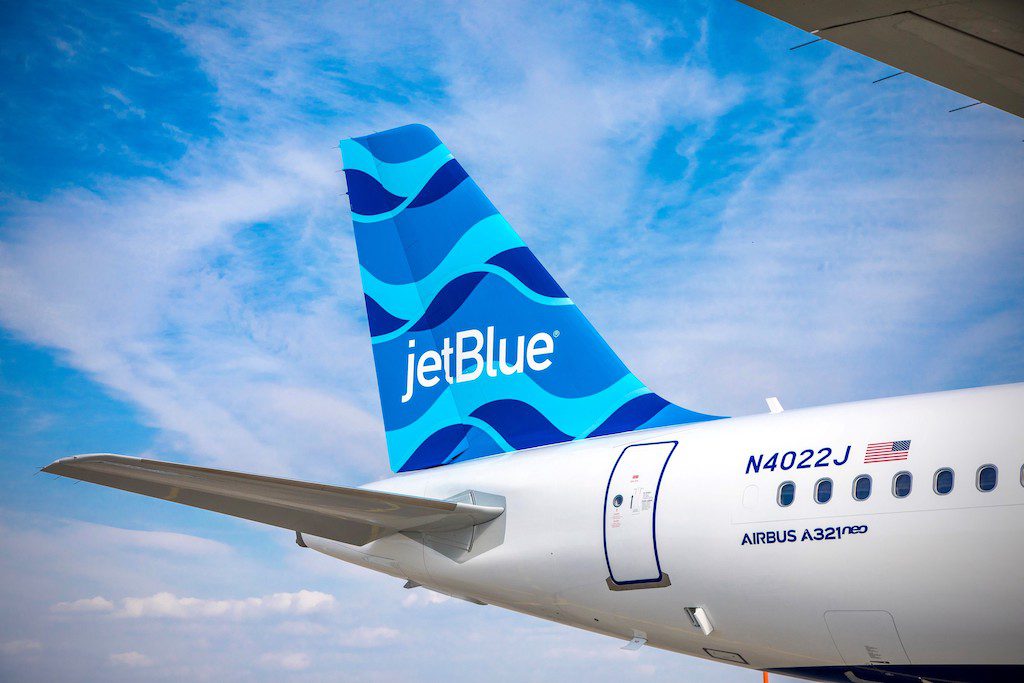Travel IPOs to Watch for in 2021

Skift Take
Investor enthusiasm for initial public offerings hit records in 2020, with the most listings in the U.S. since 1999. Euphoria about Airbnb's debut as a public company in December may benefit other travel startups, such as Turo, Yanolja, Traveloka, Gett, Vacasa, Sonder, TripActions, Tujia, SiteMinder, and FlixMobility, which appear to be considering stock market debuts in 2021 or 2022.
A handful of travel startups as a category may eye potential public listings in 2021 as a way to shore up their finances during the crisis. Recent pandemic-related underperformance may not turn off all investors.
"In the travel sector, investors pay attention both to short-term losses due to the Covid 19-related drop in travel, but also future profit potential," said Jay Ritter, a finance professor at the University of Florida's Warrington College of Business.
Yet most travel companies have seen their profitability wilt during the pandemic. That means they lack the impressive growth rebound that Airbnb could show investors.
"It's very unlikely we will see many — if any — travel IPOs this year, given how badly the sector has been hit by coronavirus," said Adam Vettese, a London-based analyst at multi-asset investment platform eToro. "Airbnb was very much an exception."
"I can't see many other travel firms taking the risk while passenger numbers are so low and the prospects of a quick return to full capacity look so slim," Vettese said. "At the moment, the travel sector is a play for investors hunting a heavily-discounted bargain and who believe the sector will take-off again once large swathes of the global population have been vaccinated."
One possible near-term exception may be travel startups that are technology plays. Tujia, sometimes referred to as China's discount version of Airbnb, might go public this year for reasons like Airbnb's. Tujia, which has disclosed raising more than $755 million in venture capital, might seek an initial public offering later this year as a way to raise cash to compete with Airbnb (marketed in China as Aibiying).
"Tech has been the undoubted winner from this crisis and continues to confound those who believe that it is a bubble ready to burst," Vettese said.
Another possible exception is companies that find a roundabout way to the market.
The U.S. IPO market is getting a boost from a wave of special purpose acquisition companies (SPACs), or blank check companies, which are shell companies with no operations but are created to acquire or merge with another company. SPACs promise founders a chance to speed up the path to an IPO in return for a cut of the action.
Several of these special-purpose acquisition companies debuted in 2020 with stated interests in the travel and transportation sectors, including Altitude, Go Acquisition, Thayer, and Virgin's VG Acquisition. Other blank check companies, such as Brad Gerstner's two SPACs Altimeter Growth 1 and 2, may bet on travel, too.
Analysts caution that some travel companies considering IPOs may only aspire for share prices in the single digits rather than the well above $100 price where Airbnb shares have been trading.
Yet even small IPOs can bring in much-needed cash for investment and consolidation of sectors while appeasing early and long-time backers. Everyone wants to take advantage of rare exuberance in the stock market while it lasts.
Here's a look at some startups that appear to be planning or considering public listings soon.
Turo
Turo, an online car rental marketplace, said it plans to go public this year, a spokesperson confirmed. The San Francisco-based company, which helps individuals rent out their cars during spare hours to strangers, raised $280 million in its recent Series E round.
The decade-old startup had its first profitable quarter in the third quarter of 2020, a spokesperson told Skift. It hasn't closed the books on its fourth quarter. The company estimated before final audits that it generated $153 million in revenue last year, as first reported by the Wall Street Journal. Turo said many of its bookings come from people who need cars for local excursions or to work and live remotely.
Turo has an approximately 90 percent market share, according to data analytics firm Second Measure. Other mobility players have models that somewhat overlap and somewhat differ, such as GetAround and, in Europe, BlaBlaCar. (BlaBlaCar's executives told Bloomberg they're goal is to go public "after a couple of years.")
Yanolja
Yanolja, which is a South Korean company that is an online travel agency, a hotel tech provider, and a hotel operator, has been speeding up its efforts to go public at this moment. Late last year, it hired Mirae Asset Daewoo and Samsung Securities as underwriters.
The company hasn't scheduled a listing, a spokesperson told Skift.
The company is seeking a $4 billion valuation, a major Korean newspaper reported. Korean media also reported rumors this month that private equity titan Carlyle had expressed interest in helping Yanolja sell blocks of stock in advance of its listing on a public exchange as an intermediate step this year.
Last year, Yanolja's group of companies generated $10.6 billion (11 trillion Korean won) of global business-to-business transactions, including both domestic and international transactions, a spokesperson said.
The company, which has Booking Holdings as one of its financial backers, will struggle to survive on the domestic market, some experts speculated. It needs to scale up globally to thrive. An IPO could help it do that.
Traveloka
Traveloka, Southeast Asia's largest online travel startup, told Reuters in December that it would go public "soon" and was evaluating a merger with a SPAC as a possible path. Bloomberg News reported the tight-lipped company as having a private-market valuation of about $2.75 billion. The Jakarta-based company has disclosed raising more than $750 million to date from investors, including from Expedia Group, since its founding in 2012.
The company recently said that its transactions are back to pre-crisis levels in Thailand and Vietnam, two of its key markets. It also told Tech in Asia in November that it expected to break even in early 2021.
Some venture capital funds that were early backers may be eager for Traveloka to IPO to deliver cash returns to their investors. East Ventures, for example, invested in Traveloka from a fund it created in 2010 and whose investors are now hoping for returns, reported Business Times Singapore. The company didn't respond to a request for comment.
Gett
Gett, a corporate travel startup based in Israel, is another contender for an initial public offering.
"We have always said that an IPO is a potential in the future," a spokesperson said. "At the moment, we are fully focused on growing our bespoke corporate software-as-a-service solution internationally."
That said, the decade-old company has raised more than $750 million in venture capital. It said last Tuesday it had raised $15 million to add to a $100 million funding round it had announced in June. By the end of this year, some investors may be itching to benefit from the market frenzy before events might cause IPO euphoria to dissipate.
Gett pivoted away from its ride-sharing focus toward becoming a business-to-business platform. A spokesperson noted that the company offered its first on-demand corporate ride in 2011, one year after its founding, so that it has had a long legacy in business-to-business travel. However, for years it was widely known for its consumer-facing ride-hailing service.
Today it primarily organizes mobility providers in one single platform, aiming to optimize the experience from booking and riding to invoicing and analytics."
Gett was founded in Israel, yet it operates internationally with the U.S. and Britain as core markets.
Vacasa
Vacasa, the largest full-service manager of vacation rentals in the U.S., said before the pandemic that it might seek to go public. In June Vacasa raised $108 million, following a $319 million Series C round it closed in 2019.
"[An IPO] is definitely part of a possible future for us," Roberts said in an interview last week. "Part of getting prepared is having the right people on the team with the right level of experience."
The company hired a new chief financial officer last week.
"Our focus is really around the growth of the business, supporting that growth, and getting ourselves in a position to be an independent public company at some point," Roberts told Skift. "But specific to the timing of that, right now, there's nothing to share on that."
SiteMinder
SiteMinder, which helps hotels get guests via online channels, also is a contender for going public.
"An IPO is still very much on the cards, and both 2021 and 2022 are possible dates," Sankar Nayaran, CEO at SiteMinder, told Skift.
As the pandemic emerged, SiteMinder, based near Sydney, received an investment led by BlackRock, the world's largest money manager. The company didn't disclose the investment amount. But the deal reportedly placed a more than $750 million ($1.1 billion Australian) valuation on the business.
The pandemic then interrupted the company's pace of growth. For the year to June 30, 2020, SiteMinder generated $86 million ($112 million Australian) in revenue. According to filings by its holding company Online Ventures, that represented growth from the previous year's $67 million ($97 million Australian) in revenue.
But SiteMinder also swung to a loss due to the pandemic, losing $17 million ($22 million Australian) in the financial year.
So what does the company see in its future?
"The year ahead is set to be quite revolutionary for SiteMinder," said Nayaran. "That's by design. Even against the most trying circumstances over the past ten months, we made the very intentional decision from the outset to go all-in on our three-year plan."
"Now, ten months on, we have never had a greater conviction about the role we play for hotels when it comes to online commerce," Nayaran said.
Has the number of hotel subscribers now recovered to how much, just below what in January 2020?
Reflective of the challenges worldwide, the company did see paying hotels decline by a small percentage over the last year. Equally, adding a significant number of new hotel subscriptions over a couple of quarters may have paved the way for subscriber recovery and acceleration.
A significant part of the company's revenue is today generated by its transaction-based programs, including SiteMinder Payments. For this reason, the metric the company looks at is average revenue per user, rather than subscription fees only. The company said its average revenue per user is more than $155 or $200 Australian) a month, which covers all of its hotel management, distribution, and payment solutions.
"While it's been necessary for us to modify tactics, at no point over the past year have we ever considered changing our destination," Nayaran said. "We'll be delivering on our goals over the coming year and into 2022."
Sonder
Sonder, a venture-backed lodging company that runs both licensed short-term rentals and hotels, isn't likely looking to go public this year.
While the company hasn't disclosed how much funding it has raised in total, a source said it had closed a Series E round of nearly $210 million. A Series E round is mainly for mature businesses and may help a company prepare to go public or be acquired long-run. The presumed $210 million round would tide the company over for capital to sustain growth, lessening any possible investor pressure to go public quickly.
Sonder, founded in 2012, is still a young-ish company. Estimates are that its funding has surpassed about $570 million to date. Its investors have included WestCap, run by Laurence Tosi, a former chief financial officer of Airbnb and Blackstone.
Notably, Sonder's chief financial officer and president, Sanjay Banker, didn't make predictions when the company might seek to go public when he spoke at Skift's Short-Term Rental Summit in December 2020. Other executives have been coy about when it might seek to go public. A Sonder spokesperson declined to comment. But the company has recently said it has kept an occupancy rate of about 80 percent during the pandemic, which is notable.
TripActions
It's clear that TripActions, a business travel management startup, has been considering the option of going public. Last June it raised a $125 million financing in the form of debt financing convertible at an initial public offering. Why else would the Palo Alto-based company structure a deal that way?
Some experts believe TripActions is in no rush to sit down with underwriters. It previously raised a $250 million venture equity Series D round in June 2019, led by Andreessen Horowitz. It is customary for startups to raise Series E and sometimes even Series F rounds as the next logical steps before getting serious about going public or getting acquired.
Even during the crisis, the company has claimed to have seen significant growth as enterprises switched to modern travel and expense management as a cost-cutting measure and in anticipation of more distributed working arrangements in at least the near-term.
A TripActions spokesperson declined to comment.
Everything said above about TripActions's IPO considerations might plausibly be said of its European-based counterpart TravelPerk, too. TravelPerk's most recent round was a Series C. So no IPO is likely to be in the offing until at least in 2022.
Softbank's Portfolio Companies
The IPO prospects for tour-booking companies GetYourGuide and Klook didn't improve when their largest financial backer, Softbank, raised $500 million on January 8 for a special purpose acquisition company. Softbank said that SVF Investment Corporation, which is sponsored by SoftBank Investment Advisers, will not invest in the portfolio companies of the Softbank Vision Fund, which includes GetYourGuide and Klook, according to Bloomberg News.
GetYourGuide and Klook both declined to comment for this story.
Softbank's other travel investment, lodging startup Oyo, also would be outside of the target range of the SPAC. Oyo said earlier this month in a statement that it had a "long-term goal of an IPO."
All three travel startups have seen their revenues slammed by travel restrictions in many markets. Softbank may be eager to see these investments go public as a way to free up cash after its WeWork investment went sideways last year. But the startups may need a different path — in another year than 2021 — to get there.
FlixMobility
One example of an IPO dream deferred is FlixMobility. This Munich-based startup runs the FlixBus inter-city bus service in Europe and the U.S. and also rail service in Germany. The company has disclosed raising more than $561 million (€500 million) from investors such as TCV, Permira, Holtzbrinck Ventures, General Atlantic, Silver Lake, Ocean Link, and Daimler since its founding in 2011.
FlixMobility told Skift it had no imminent plans to publicly list the company.
"FlixMobility doesn't rule out a future IPO, as long as it suits the interests of the company, the customers, and the shareholders," a spokesperson said.
This approach makes intuitive sense. The pandemic has caused bus and rail travel to crater. A faster spreading mutation of the coronavirus might limit the company's potential in the first half of this year. So the company may want to wait until normal times have returned. It could then show potential IPO investors a full year of revenue and profit across a normal 12-month span and multiple countries and business units.
Mixed Predictions
Some analysts believe travel will be one of the last sectors to recover in many countries.
"As we have seen, distributing vaccines to hundreds of millions of people is a logistical nightmare, and we don't know how effective these vaccines are against the highly-transmissible new strains that have been discovered," Vettese said. "That's why, for me, a recovery in the travel sector is some way off, and it may be another two or even three years before traveler numbers even get close to their pre-Covid levels."
Other analysts are more sanguine. They note that company valuations in public and private markets are often high because of low interest rates. That dynamic has meant that investors have been more tolerant than usual about betting on money-losing companies.
"An analogy is the spring of 2003, when the second Gulf War and SARS [severe acute respiratory syndrome] both slammed the travel market, especially in East Asia," Ritter said.
"I traveled to Seoul and Singapore in May 2003 on business, but dropped stops in Beijing and Hong Kong, where SARS was not under control," Ritter said. "One weekend, I made a quick trip to Bali, where the tourism business had collapsed by 95 percent. Things were bleak, but everyone expected the problems to be temporary. I think that we are in a similar situation now."





